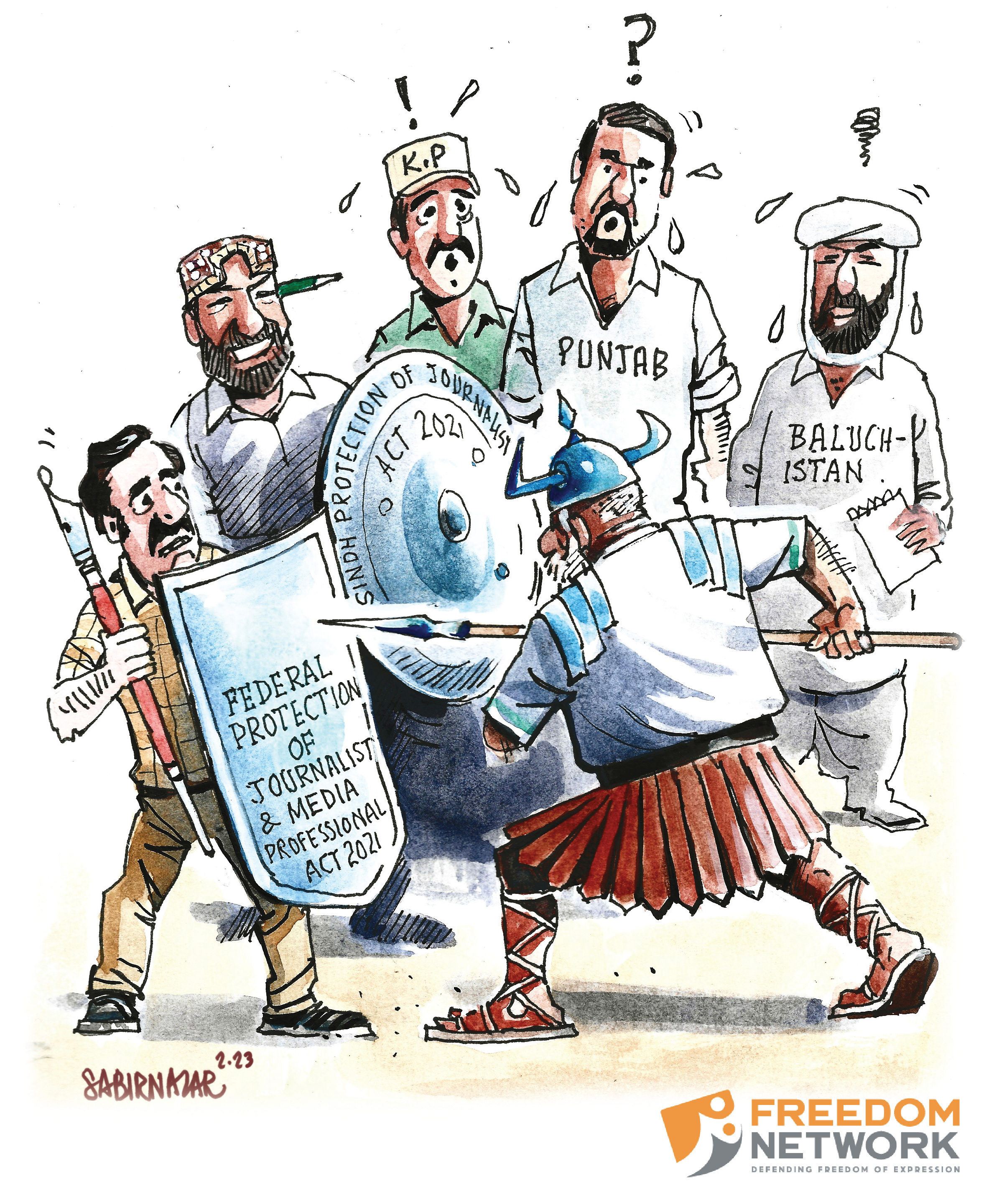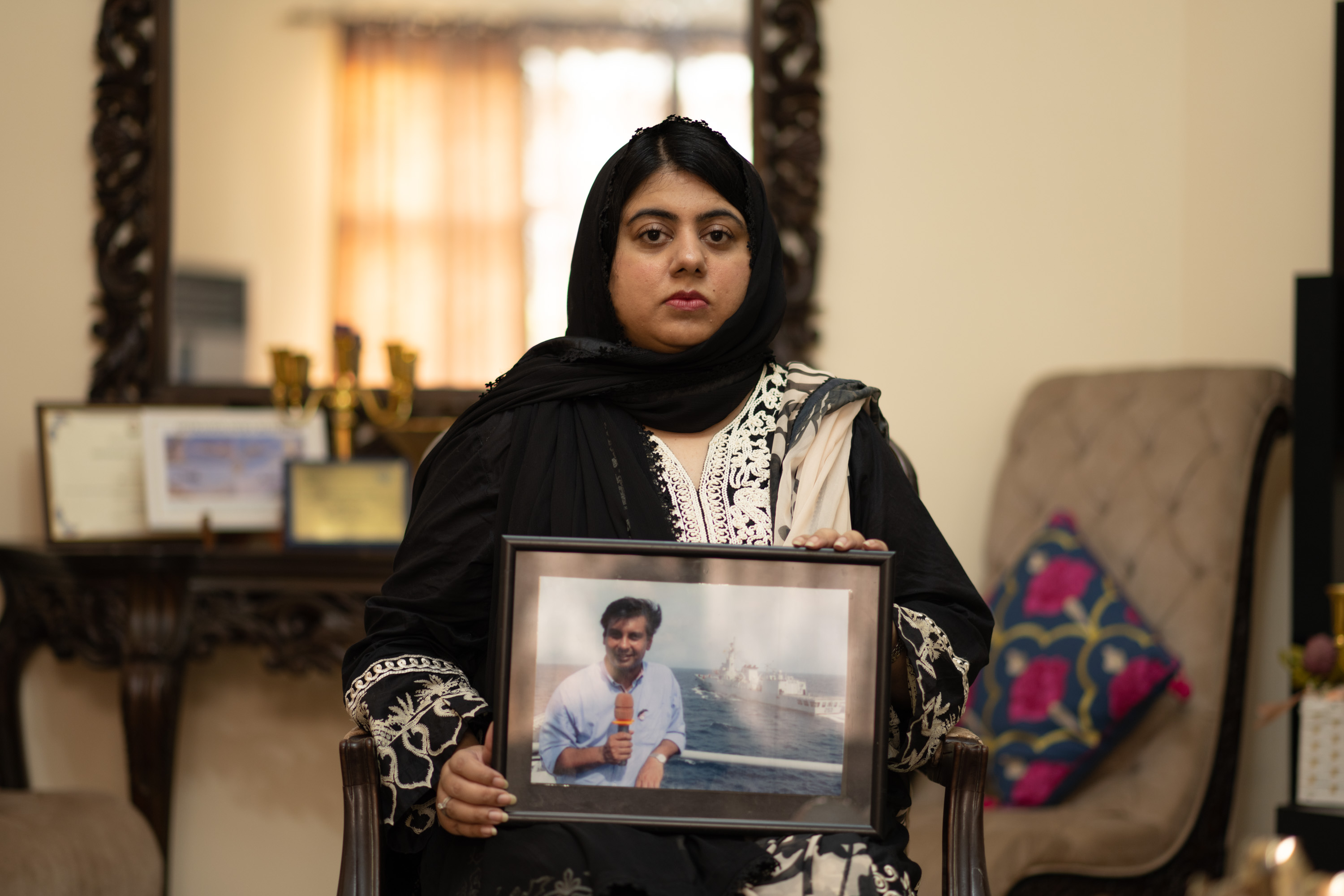TV news channels are supposed to provide information based on facts with objectivity and honesty. Sadly, all this is sorely lacking in the expanding media milieu in Pakistan. Without a touch of Bollywood melodrama and sensation, our news today is incomplete. Our news bulletins have turned news channels into ‘infotainment channels.’ Is it because of the rating competition, marketing considerations or plain lack of professionalism?
While speaking at a private university, a producer of a popular infotainment show on a private TV channel admitted that at least 50 percent of their “show” was based on “fake stories,” and the channel dramatized it in such a fashion that it looked real.
He was speaking about a show that is among the top-rated infotainment show aired on every Saturday and Sunday. It would not be difficult to assess, then, the kind of information we feed our viewers.
One must appreciate the confession made by the producer but was he the only person responsible. Such shows normally have a producer, an assistant producer, a researcher and the anchor himself, who act as a captain because he or she is the one who often face criticism in the media, whether it is his or her fault or not. Anchors and reporters are the real face of any channel.
One of the channels recently fired its bureau chief in Hyderabad after numerous complaints against him, including airing a “fake crime story.” When the show was aired, it hit the headlines, got good ratings and the channel made special promos for promotional purposes and the issues were also covered in the news bulletin. Now was it ethical on part of the anchor, channel and all those involved to air the story? Why was only the producer fired?
The police arrested the bureau chief in what has been described by his colleagues “in a most humiliating” manner. “He was picked up like a terrorist or a criminal. They did not even allow him to wear his shirt,” said Ali Hasan, former president of Hyderabad Press Club.
When he was released on bail of Rs.1 million (according to the bureau chief) after 24 hours of police custody, I called him to find out his side of the story. He was afraid to talk, his voice was chocked and he said little about his ordeal. “I am innocent, I did nothing. It has nothing to do with the story but I can’t say at the moment why I was picked up and on whose order,” he said.
When I spoke to a senior staffer of his channel, he confirmed that there were number of complaints against the bureau chief including the story aired in the popular show.
The channel may take more action against some of the other people involved in the story and the show, but the fact is: Was this the only show where we often see stories far from facts.
What many team members and anchors of different shows do not realize is that such stories could threaten their lives, not because of their “boldness” but due to “fake or non-factual” stories.
A story based on facts and proper investigation can attract viewers depending on its production quality and content. So, why to look for a “desk story?”
Many private TV news channels have crime shows aired at prime time from 7pm to 11pm. Even in the morning shows events are “dramatized” (factual or non-factual) and as a result infotainment now has a dominant role while news and current affairs have taken the backseat.
The Islamabad High Court recently took notice of a show in which a female anchor “raided” – a term more often used by bureaus of different channels and newspapers for policing – a prostitution den. Except for showing “sex scenes” she allegedly showed everything, as she asked all kind of probing questions from the “call girls.”
Though “infotainment” is not confined to crime shows, those heading such programmes are under tremendous pressure to bring more and more crime shows. The content of these shows is often dominated by sex stories as it gets “good rating.”
We, the reporters, producers and acnchors, don’t hesitate to raid houses, cafes, private parties any more.
Now in the race and competition, the channels have ran out of true stories – though there are millions of them provided someone interested can go find them – and turned to concocted stories.
Instead of promoting investigating journalism and allowing reporters to investigate true news stories on crime, terrorism, financial scams, political scandals, we have adopted a more negative approach.
I know for a fact how some of our colleagues put pressure on different departments and at times blackmail the police and other departments like customs, excise and taxation etc.
When the private ownership of news channels was allowed in 2001, the channels attracted viewers as they offered 24/7 news. Compared to the print media’s combined circulation of some five million, the viewership of the news channels crossed 30 million.
The credit goes to the “news.” But now the channels have increased the ratio of infotainment. In the initial years, we used to have re-enactment, which was later taken over by dramatization. Now we have complete drama in the “news channel.”
Some of us still remember what happened when one of the channels ran a “fake story” about a madrassa in Karachi that kept its students in chains. Everyone who handled the story knows the actual facts, yet a fake story was aired. The outburst was more lethal from the madrassa than they expected. The team members went underground and ran from one city to another to save their skin.
The fake stories, often presented as real stories, are not only unethical but often put the anchors, producer and team members in embarrassing position. At times, they are left with no other option but to offer a public apology. But when the crunch comes – in the shape of action from the police, law enforcement agencies or from non-state actors – it is only the staffers that suffer.
There is nothing wrong in reenactment and actors presenting a story for as long as the story itself is not fictitious. After all, the basis of journalism and ethical media is to look for stories based on “facts” that have to be accurate.
We need to promote healthy journalism, not fake journalism. Pakistani media has come a long way after a tireless struggle. People have lot of faith in us. Let’s not destroy it in the name of commercialism and the mad race for rating.
—————————————————————————–
The author is former secretary-general of Pakistan Federal Union of Journalists.
———————————————————————————–
Image courtesy: Google Images
The Rise Of ‘Fake Media’ In Pakistan
- November 6, 2013
- 2:57 am
- No Comments
More from the News section
September 18, 2023
No Comments
July 26, 2023
No Comments
June 20, 2023
2 Comments
March 21, 2023
No Comments
August 30, 2022
No Comments

Resize text-+=

